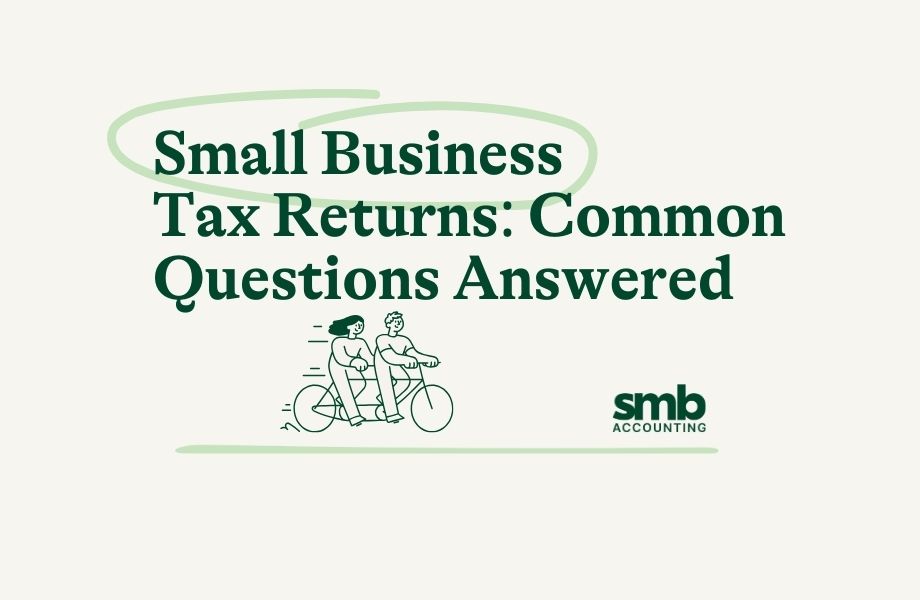Navigating the world of taxes can feel like quite the endeavor, especially for small businesses on the Sunshine Coast. It’s a key area that requires attention and understanding to comply with regulations and ensure your business maximises its financial health. Filing tax returns is one task that’s essential for keeping your business in good standing and setting you on the right path toward growth.
On the Sunshine Coast, local tax regulations may impact your business in ways that differ from other regions. It’s important to grasp how these rules apply specifically to your company, which can help prevent any unexpected hiccups. This guide will walk you through the common questions you might have about handling tax returns for your small business, helping you manage these obligations more smoothly.
Common Questions About Tax Returns
A tax return is a form or series of forms filed with a tax authority, like the Australian Taxation Office (ATO), that reports income, expenses, and other relevant tax information. It’s a way for your business to calculate its tax liability and, if applicable, to declare a refund if you’ve overpaid. For small businesses, tax returns are crucial because they ensure you’re meeting your legal obligations and also help identify areas where you can reduce tax liabilities. For example, identifying legitimate expenses that could serve as deductions can be financially beneficial.
Small businesses typically file their tax returns annually, with the financial year in Australia running from July 1 to June 30. However, keeping up with quarterly business activity statements for GST or PAYG may also be necessary. These regular filings ensure that any tax owed is paid on time and that you’re not left scrambling to organise records at the end of the year.
Understanding the basics of filing tax returns and adhering to local regulations on the Sunshine Coast can set your business up for success. Addressing these typical questions can ease fears of the unknown and arm you with the knowledge needed to handle tax time confidently. Next, let’s look into the deductions and credits that may apply to businesses in this region, as getting these right can make a notable difference in your overall tax situation.
Deductions and Credits
Understanding how to make the most of deductions and credits can significantly influence the financial outcome for your small business on the Sunshine Coast. To get started, it’s helpful to identify the kinds of expenses that qualify. These might include vehicle costs related to business use, home office expenses, and certain operational costs. More specifically, small businesses can look at:
– Operating Expenses: Includes costs like advertising, electricity, and office supplies.
– Employee Costs: Salaries, superannuation contributions, and training can often be deducted.
– Depreciation: Over time, things like machinery and office equipment lose value. Depreciation allows you to claim this loss to reduce your taxable income.
To make sure no stone is left unturned, consider involving a professional who knows the ins and outs of local tax laws. They can provide tailored advice on how to leverage deductions best suited to your business context on the Sunshine Coast. With this knowledge in hand, you’ll be better equipped to trim down your tax burden.
Record Keeping Tips
Proper record keeping is crucial. It not only ensures compliance with tax requirements but also helps during tax time if any discrepancies arise. A well-organised system makes returning documents simpler and quicker. It’s a good idea to maintain records such as:
– Receipts for all purchases related to business operations.
– Bank statements showing business income and expenses.
– Invoices issued and received during the financial year.
While it’s tempting to discard seemingly unimportant documents, holding on to records for the recommended five years helps prevent potential penalties. Plus, it simplifies any amendments or re-evaluations you need to make. Cloud-based solutions can streamline the process by allowing you access anytime and anywhere, making it easier to update your records consistently.
Common Mistakes to Avoid
Small businesses often run into trouble by overlooking details or rushing through the process. Many make errors such as missing deadlines or inaccurately claiming deductions that don’t apply. Being aware of these pitfalls can prevent unnecessary stress:
– Missing the Due Date: Ensure you know the key dates for lodging returns and business activity statements to avoid late fees.
– Incorrect Deductions: Double-check eligibility for all deductions claimed to ensure they align with legitimate business expenses.
– Poor Record Keeping: Implement a consistent system for managing documents to ease the filing process.
Ensuring awareness of these common mistakes can save you time and money. Taking proactive measures can significantly reduce errors and improve your tax return process. Being detailed and thorough might seem time-intensive but is well worth it in the end.
Wrapping Up Your Small Business Tax Returns
Taking the steps outlined can greatly ease your tax return experience, especially when you’re operating on the Sunshine Coast. By understanding the essentials of filing returns, maximising available deductions and credits, and maintaining effective record-keeping, your business can navigate tax time with confidence. Mistakes are often avoidable with a proactive approach and careful preparation, making your tax process smoother.
Your business can stay compliant with local tax regulations while focusing on growth and operational success. Seeking expert advice can further help in tailoring strategies to your specific business needs. Embracing these practices empower your small business to handle tax matters efficiently, freeing resources to concentrate on what you love doing best.
Tackling your small business tax returns might seem overwhelming, but you don’t have to do it alone. By seeking guidance from professionals familiar with tax returns on the Sunshine Coast, you can stay compliant and maximise your business’s financial health. Connect with SMB Accounting to ensure your tax matters are handled seamlessly and efficiently.




